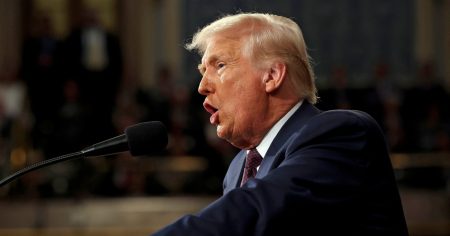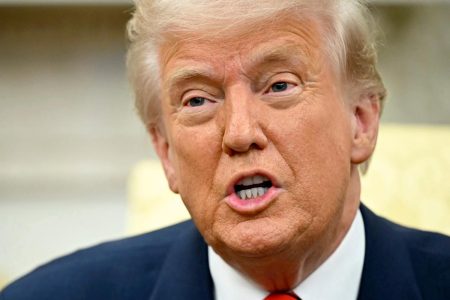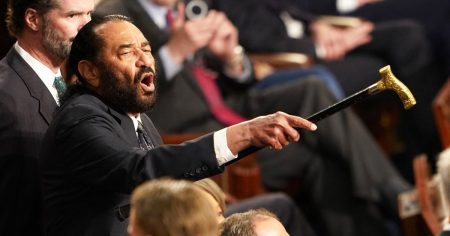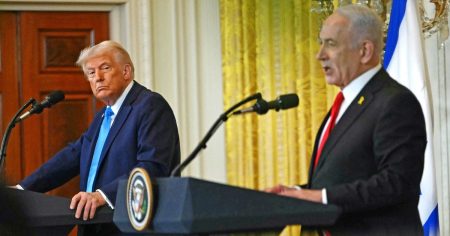A Contentious Confirmation Hearing: Linda McMahon and the Future of Education Policy
The confirmation hearing for Linda McMahon, President Donald Trump’s nominee for Secretary of Education, sparked significant concern among educators, policymakers, and civil rights advocates. The hearing took place against the backdrop of a controversial executive order signed by Trump on his first day back in office, which aimed to dismantle diversity, equity, and inclusion (DEI) programs across the federal government. The order also introduced measures to promote what the administration termed “patriotic education” and threatened to withhold federal funding from public schools that teach critical perspectives on the country’s history, such as acknowledging systemic racism or sexism. These moves have raised alarms about the potential erosion of inclusive education and the chilling effect on schools that prioritize diversity and representation.
Trump’s Executive Order: A Broad Assault on DEI Initiatives
Trump’s executive order marked a significant escalation in his administration’s anti-DEI agenda. The order not only abolished diversity programs within the federal government but also placed employees working on DEI initiatives on administrative leave. Government institutions like the Smithsonian Institution shuttered their diversity programs, while West Point Academy disbanded ethnic affinity groups, fearing that these initiatives conflicted with the administration’s new stance. The move was widely criticized as an attack on efforts to address systemic inequities and promote inclusivity within public institutions.
The order also introduced new guidelines for public schools, threatening to revoke federal funding if they taught that the United States is “fundamentally racist, sexist, or otherwise discriminatory.” This directive represents a clear attempt to shape historical narratives and limit discussions about race, gender, and inequality in the classroom. Critics argue that such measures undermine the principles of academic freedom and the critical thinking skills that public education aims to foster.
McMahon’s Evasion on Racial and Ethnic Clubs in Schools
During her confirmation hearing, Senator Chris Murphy (D-Conn.) pressed McMahon for clarity on how Trump’s executive order would impact public schools that host race- or ethnicity-based clubs or classes. Murphy’s questions were straightforward: Would schools risk losing federal funding if they allowed students to gather in clubs based on racial or ethnic identity? For example, would a Vietnamese student club or an African American history class jeopardize a school’s funding?
McMahon repeatedly sidestepped these questions, stating that she preferred not to address “hypothetical situations.” Murphy pushed back, emphasizing the real-world implications of McMahon’s evasions. “You’re saying that it’s possible that if a school has a club for Vietnamese students or Black students where they meet after school, that they could potentially be in jeopardy of receiving federal funding?” he asked. McMahon’s inability or unwillingness to provide clear answers left many educators and policymakers deeply unsettled.
Implications for Schools and Students: Fear and Uncertainty
The exchange between Murphy and McMahon highlighted the broader concerns about the executive order’s impact on public education. Schools across the country could interpret McMahon’s evasions as a sign that race- or ethnicity-based clubs or classes might indeed be at risk of losing funding. This uncertainty has created a climate of fear among educators, who are now forced to question whether longstanding programs or clubs could be targeted by the administration.
Murphy underscored the potential consequences: “I think schools all around the country are going to hear that,” he said, referring to McMahon’s refusal to provide a definitive answer. “I think you’re going to have a lot of educators scrambling right now.” This scrambling could lead to self-censorship, as schools preemptively dismantle programs or clubs to avoid losing federal funds. Such actions would not only harm students’ sense of belonging and identity but also undermine efforts to promote diversity and inclusion in schools.
A Broader Attack on Diversity and Inclusion
The controversy surrounding McMahon’s confirmation hearing reflects a larger debate about the role of diversity, equity, and inclusion in public education. Trump’s executive order and the subsequent actions taken by federal institutions represent a concerted effort to roll back progress on these fronts. By targeting DEI programs, the administration is signaling a108 return to a more monolithic view of American identity—one that erases the experiences of marginalized communities and discourages critical discussions about race, gender, and inequality.
This shift has far-reaching implications. For decades, schools have worked to create inclusive environments that reflect the diversity of their student populations. Race- or ethnicity-based clubs and classes have been integral to these efforts, providing students with spaces to explore their identities, build community, and address the unique challenges they face. If the administration follows through on its threats, these programs could disappear, leaving students without critical support systems and educators without tools to address systemic inequities.
The Fight Ahead: Education, Civil Rights, and Democracy
The debate over Trump’s executive order and its implications for public education is far from over. Advocates for diversity and inclusion are gearing up for a fight, arguing that these programs are essential to fostering a more equitable society. They point out that teaching about race, gender, and inequality is not about promoting divisiveness but about preparing students to engage with the complexities of the world they live in.
The stakes are high. At its core, this controversy is about the kind of education we value as a society—one that prepares students to think critically, empathize with others, and engage meaningfully with the challenges of democracy. By threatening funding for schools that embrace diversity and inclusion, the administration is not only undermining civil rights but also weakening the foundation of American democracy. As the confirmed Secretary of Education, Linda McMahon’s role will be critical in shaping the future of public education. Her evasions during the hearing suggest that the road ahead will be fraught with challenges, but advocates remain determined to fight for an education system that values and celebrates diversity in all its forms.









